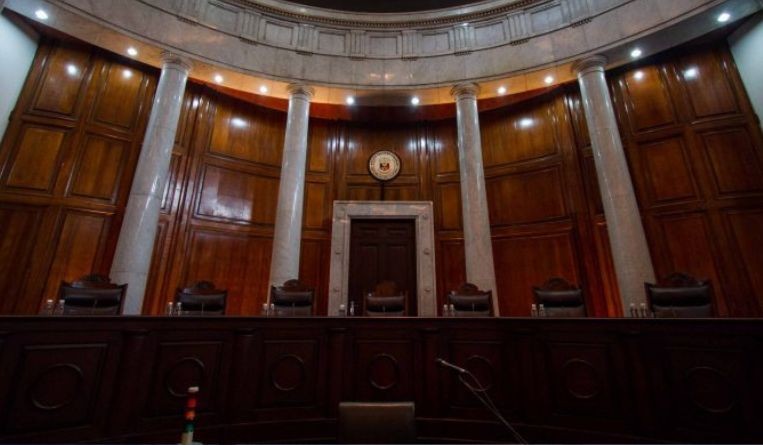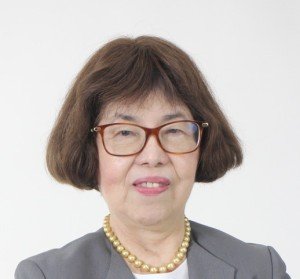The dispute on the FARLIN trademarks has been a long-running saga for the last 30 years between Farling Industrial Co., a Taiwanese corporation, and Cymar International, a Philippine company.
The Supreme Court of the Philippines promulgated a decision on August 17, 2022, in the consolidated cases of Cymar International Inc. v. Farling Industrial Co., Ltd, G.R. Nos. 177974, 206121, 219072, 228802, which were uploaded to the Supreme Court website on December 16, 2022. These petitions involved five cancellation and three opposition cases. The FARLIN trademark and its variations covering baby-related products, as filed by the petitioner Cymar, are shown below:

The five cancellation cases were filed in 1994 before the then-Bureau of Patents, Trademarks and Technology Transfer, now the Intellectual Property of the Philippines (IPOPHL), to cancel the FARLIN certificates of trademark registrations obtained by Cymar in 1990, 1991 and 1993. During this period, the law in force was Republic Act No. 166 under which the essential element giving rise to the protection of a mark is actual use in commerce in the Philippines; hence, there were many decisions which allowed prior actual users of marks to defeat registered trademarks.
In the cancellation actions, Farling claimed that the term FARLIN was coined from its corporate name; that it owns the trademark FARLIN which had been registered in Taiwan since 1978; that Cymar, knowing full well that Farling is the true owner of the mark, fraudulently obtained said trademark registrations. Farling submitted evidence such as shipping and other commercial documents showing its shipments to Cymar in the Philippines of baby-related products bearing the FARLIN trademark. In its defense, Cymar posited that it is the first user of the FARLIN mark in the Philippines; that Farling’s registration in Taiwan does not specify the particular products and is not protected by the Paris Convention having been issued prior to its accession; that Cymar’s certificates of trademark registration are prima facie evidence of its validity and Cymar’s ownership and right to exclusive use of the FARLIN mark; and that Farling is a foreign corporation not allowed to do business in the Philippines without a license.
On December 26, 2002 the Bureau of Legal Affairs (BLA), the adjudicating arm of the IPOPHL, issued a decision in favour of Cymar and ruled that Farling’s trademark prior use and registrations in Taiwan and other foreign countries cannot be the source of trademark rights in the Philippines since it failed to register FARLIN as a foreign mark as required by RA 166, and agreed with Cymar’s claims.
Undeterred, Farling appealed the BLA decision to the Office of the Director General of the IPOPHL (ODG), and on October 22, 2003, the latter granted Farling’s appeal and cancelled Cymar’s certificates of registrations of the FARLIN mark. The ODG found Farling’s evidence sufficient to prove that Cymar is merely an importer or distributor of Farling’s trademarked products. It ruled that as a mere distributor and importer, Cymar had no right to register the FARLIN trademarks, and that Farling as the rightful owner thereof, is entitled to have Cymar’s certificates of trademark registrations cancelled.
Cymar appealed the ODG decision to the Court of Appeals (CA), and on July 26, 2005, the latter affirmed the ODG decision on the basis of the finding that the import-export business of the parties involving plastic baby products began as early as 1982 prior to Cymar’s registration of the FARLIN trademark in its own name. Cymar filed a motion for reconsideration and submitted new evidence which was entitled “Authorization” claiming that it was proof that Farling had waived its right over the FARLIN mark in the Philippines and that Cymar had become the owner thereof. The “Authorization” is actually a waiver of Farling’s copyright over the box design of the FARLIN mark, in favour of Cymar, and it was indicated that it was in compliance with the documentary requirements of the Copyright Section of the Philippine National Library. The evidence showed that Cymar made the request for Farling to sign said waiver so that Cymar could easily file criminal charges against infringers. The Court of Appeals denied Cymar’s motion for reconsideration stating that the “Authorization” cannot be considered as newly discovered evidence since it had been in the possession of Cymar’s counsel all along and could have been introduced during the proceedings at the IPOPHL. The Court of Appeals also sustained Farling’s argument that the “Authorization” should no longer be considered by the court since it amounted to a change of theory on appeal which is prohibited. Cymar appealed these decisions of the Court of Appeals in a petition for review before the Supreme (the 1994 cancellation case).
While the 1994 cancellation case was ongoing, Cymar filed the following trademark applications: (i) December 18, 2002 – FARLIN YOUR BABY IS OUR CONCERN (WITH MOTHER AND CHILD LOGO), (ii) April 23, 2003 – FARLIN DISPOSABLE BABY DIAPERS (with Mother & Child Icon), (iii) August 22, 2007 – FARLIN BLUE BUNNY AND BUNNY DEVICE. These applications covered baby-related products, among others. Farling opposed all of the above applications, and the IPOPHL and the Court of Appeals ruled in its favour. Undaunted, Cymar, arguing mainly on procedural and technical grounds, appealed all decisions in these three opposition cases to the Supreme Court.
The Supreme Court listed nine issues to resolve in these consolidated petitions for review – all boiling down to one issue: who between Cymar and Farling has the right to use and register the FARLIN mark and its derivatives in the Philippines. The Supreme Court found that the unrebutted documents submitted by Farling constituted more than substantial evidence to prove that Cymar and Farling had a distributorship agreement involving the FARLIN-branded baby products which lasted for almost 11 years. Hence, the ODG and the Court of Appeals correctly ruled that Cymar cannot claim prior use of the mark in the Philippines. As early as 1974, the Supreme Court had already ruled that an “exclusive distributor does not acquire proprietary interest in its principal’s trademark”, even if the principal is a foreign corporation. Other significant takeaways from this case are:
-
The Supreme Court ruled that Cymar registered the FARLIN marks in bad faith. Citing its pronouncement in other cases, the Supreme Court defined bad faith as copying and using somebody else’s trademark. Fraud is intentionally making false claims to take advantage of another’s goodwill thereby causing damage or prejudice to another. There is no distinction between the concept of bad faith and fraud in trademark registrations because the existence of one necessarily presupposes the existence of the other. The evidence showed that Farling agreed to register the FARLIN mark in the Philippines with the assistance of Cymar because of the distributorship agreement. Cymar sent the trademark applications to Farling which signed it and had it notarized and sent back to Cymar to file, and also sent money for expenses. Cymar, however, filed the applications but in its own name, signed by Cymar’s officers during the period when the distributorship agreement was still in force, which the Supreme Court found as fraudulent conduct.
-
Trademarks and copyright are different intellectual property rights. The Supreme Court affirmed the Court of Appeals’ ruling that the Authorization which contained Farling’s copyright waiver cannot serve as the basis for Cymar’s claim of trademark rights because it did not give Cymar the right to use the FARLIN mark as a visible sign to distinguish the goods that it sells or produces. The Supreme Court held that the bundle of rights embraced within the copyright does not include the right to use or register the copyrighted design or stylization as a visible sign to distinguish the goods or services sold by a particular enterprise, which is the precise domain and function of a trademark.
Farling has a pending application for trademark registration (since 2007), the examination of which has been suspended because of the above case. With the Supreme Court decision, Farling would be able to finally have its FARLIN mark registered in its name.









